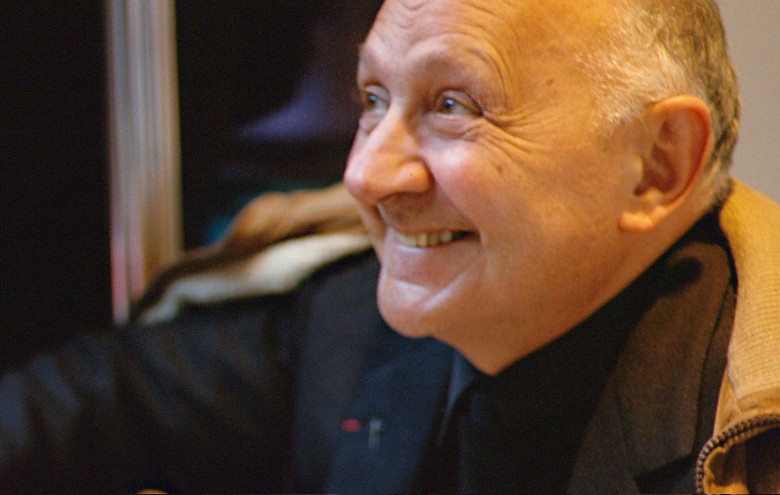Change the Rules of the Game

Photo: Joseph Wresinski at the Paris Book Fair in 1986 © ATD Fourth World
This article is based on an extract from The poor are the Church, an in-depth interview with Joseph Wresinski, founder of ATD Fourth World. The poor are the Church offers an insight into Wresinski’s thinking based on his life alongside those in poverty. This text was been edited from the original and some language updated, thus it differs from previous translations.
Reform and revolution
Between reform and revolution, which do you choose?
Is this the right question? Those in poverty have seen so many reforms and revolutions that have brought them nothing. There are ways of dealing the cards differently to those already playing. Dealing the cards differently is not enough to make room for new players, the rules of the game have to be changed. ATD Fourth World is often reproached for not “playing the game.” It doesn’t fit in with recognized partners. This is true, as ATD Fourth World brings a new player to the table. This is inconvenient for everyone.
How can we choose sides in the debate between reformists and revolutionaries? Is our duty is to ask everyone: Where are those in poverty?
Asking a question
In this respect, ATD Fourth World becomes a caretaker. By asking everyone the question about those in poverty, ATD Fourth World affirms its conviction that all contribute to the creation of new rules. These principles are not currently fashionable: Believing in the fragility of our systems and ideologies; and accepting the need to examine all our actions from the point of view of the marginalized. This is not a new principle for our societies, it’s just that it has never been made use of before. To say that all our fellow citizens, all the political parties and trade unions, all our institutions and churches must contribute to the quest for the introduction of those in deepest poverty into their lives is not new either. But this struggle to unite around the marginalized does not figure among the rules of the game in the modern world. (…)
No longer pigeon-holed
This is not about prioritising minor changes to detail based on importance, or the effort needed to achieve them. What is frightening, is that we can no longer pigeon-hole people according to their problems.
The change required is to fully recognise the dignity of people in poverty, to take their knowledge as a reference point for all our policies, and their hopes as a reference point for all our actions.
This revolution in thinking about people and how we see them, this way of understanding society as identifying itself entirely with the needs of people in poverty, is unsettling for all of us. To face the question, “What have you done to me?” at every moment and every bend in the road destroys any intellectual and material security. We would need to build on securities of a different nature. This is the reversal of priorities that ATD Fourth World is talking about.

